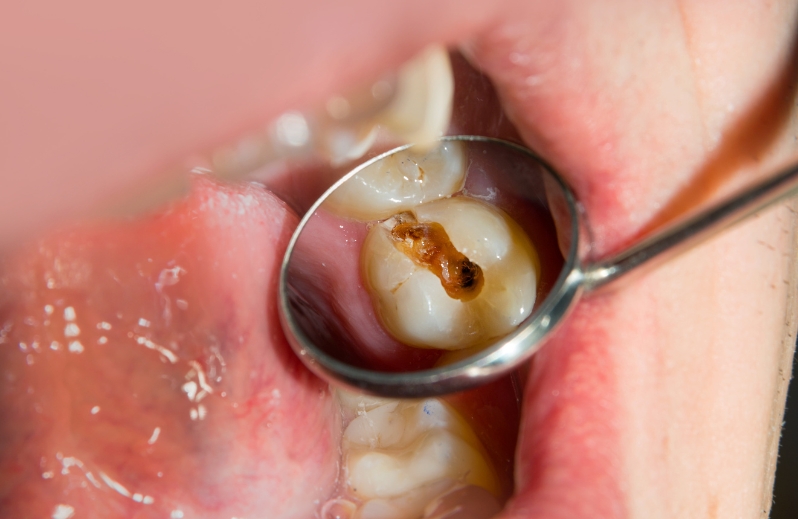1101-116 Grande Blvd, Cochrane, Alberta, T4C 2G4
Can a Dental Infection Be a Life-Threatening Emergency?

A dental infection comes into play as a minor issue. However, it can turn serious. Many people ignore dental pain as they assume it will resolve itself. However, untreated infections can spread and lead to severe complications. A dental infection can lead to life-threatening conditions if it reaches the bloodstream.
If you ignore the symptoms, it may result in emergencies requiring immediate care. Severe cases can lead to breathing difficulties, high fever, or organ failure. Seeking an emergency dentist can significantly prevent complications and save lives.
What Is a Dental Infection?
A dental infection occurs when bacteria invade the tooth or gum. It often causes abscesses, gum infections, or deep cavities. Poor oral hygiene and untreated tooth decay significantly increase the risk. Gum disease can also cause infection and spread to the tissues nearby.
Symptoms are chronic pain, swelling, pus, and fever. If you do not treat it, the infection can advance and spread.
Some are extremely painful, and eating or sleeping becomes a problem. Early symptoms assist in early treatment. To avoid further problems, you must visit an emergency dentist in Cochrane. If you ignore symptoms, it can lead to a straightforward dental infection developing into a critical condition.
How Can a Dental Infection Get Serious?
An untreated dental infection is capable of getting out of hand within a short time. The bacteria can spread into the jaw and tissues surrounding it. This causes swelling, severe pain, and an inability to open or close the mouth.
The bacteria can enter the bloodstream, which is termed sepsis, and may be fatal. Sepsis can lead to the failure of one or more organs, shock, and even death. Occasionally, a dental infection spreads to the brain and cause an abscess. This can lead to neurological complications, seizures, or coma.
Ludwig’s Angina is another serious condition linked to dental infection. It causes rapid swelling in the neck and throat and has the ability to block airways. This can lead to breathing difficulties and require immediate medical attention.
Additionally, untreated infections are capable of increasing the risk of endocarditis, a heart infection. Bacteria from the infected tooth enter the bloodstream and significantly affect the heart valves. This condition is dangerous and needs urgent care.
A visit to an emergency dentist can prevent these severe complications. Timely intervention, antibiotics, and drainage procedures are significant to stop the infection from spreading. When you ignore a dental infection, it can have fatal consequences. Early diagnosis and treatment are crucial as they help prevent life-threatening emergencies.
Warning Signs That Require Immediate Medical Attention
Some symptoms indicate that a dental infection has become a medical emergency. Breathing or swallowing difficulties suggest the infection has spread. Facial swelling extending to the neck or eyes is a red flag. A high fever, chills, and excessive sweating are the indicators of systemic infection. Rapid heart rate, confusion, or dizziness signal a severe reaction.
These signs require urgent medical care as they help prevent complications. An emergency dentist can assess and treat the infection immediately. You must seek help at the right time. It can prevent life-threatening situations. Delaying treatment can cause severe health risks.
What to Do If You Suspect a Severe Dental Infection?
If symptoms worsen, you must contact an emergency dentist immediately. Severe swelling, fever, or difficulty breathing requires a hospital visit. While waiting for treatment, you should rinse your mouth with warm salt water. Over-the-counter pain relievers can significantly help manage discomfort.
You must avoid pressing or poking the infected area, as it may worsen. Antibiotics prescribed by a dentist can control the infection. In some cases, drainage procedures remove pus and reduce pressure.
Do not ignore symptoms, as they may lead to hospitalization or surgery. Early intervention can prevent severe complications from a dental infection. Seek urgent care. It is the best approach to avoid emergencies.
Regular dental check-ups help detect problems early. Maintain oral hygiene as it reduces the risk of infections. If pain, swelling, or fever occur, seek immediate care. Prioritizing oral health can prevent medical emergencies. Don’t wait—schedule a dental check-up with our dentists today!



